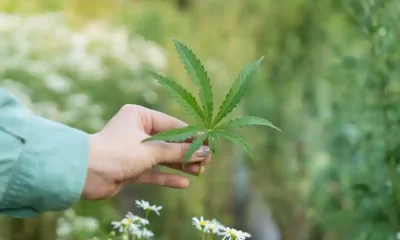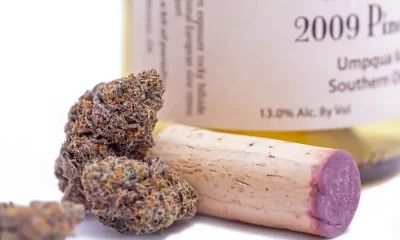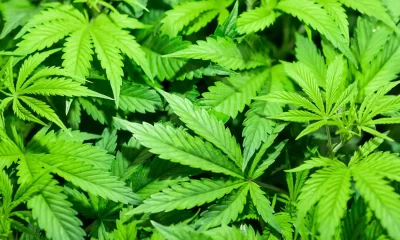Science
What Is CBDA And How Does It Help The Human Body?
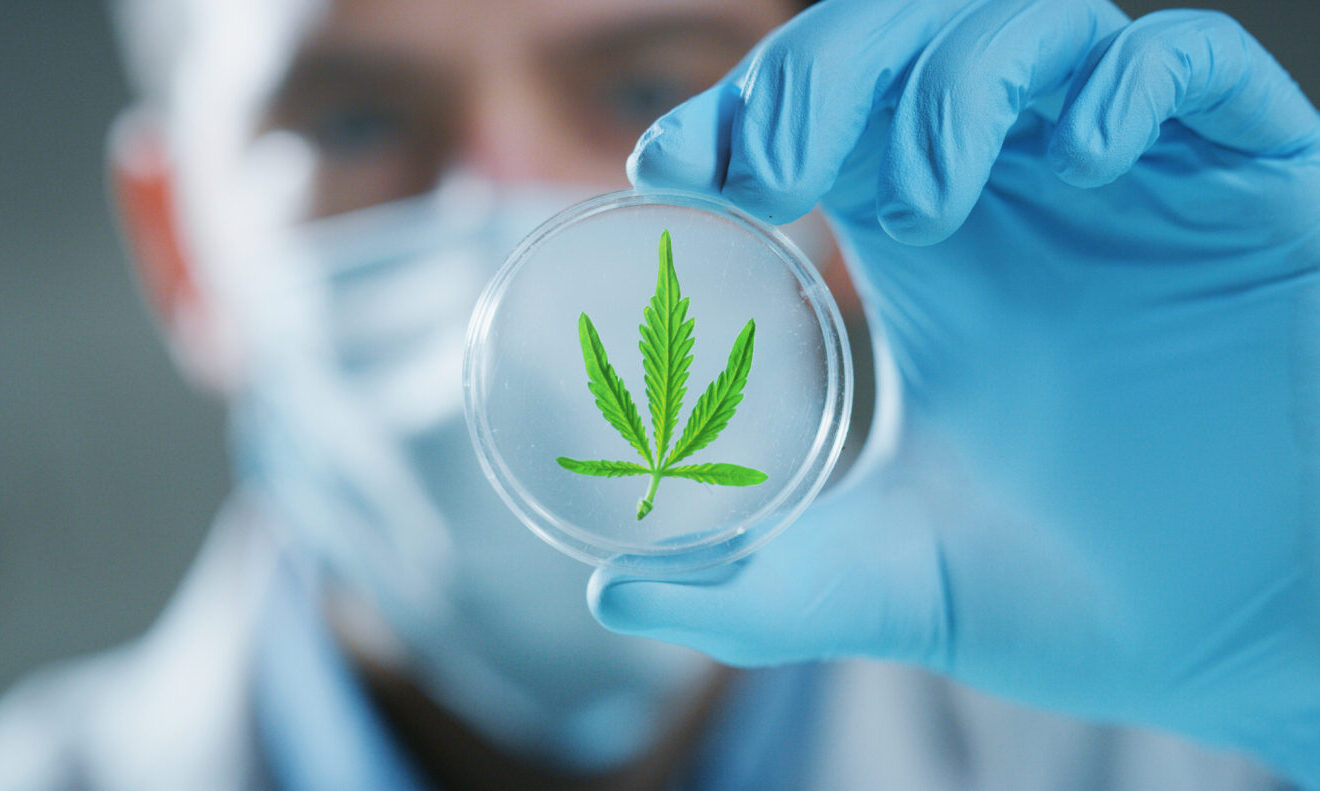
Researchers believe that CBDA could be the next big medication for treating and maintaining overall mental and physical well-being.
Cannabidiolic acid (CBDA) is a minor cannabinoid with significant medicinal promise. Recent research suggests that CBDA could be an alternative treatment for managing or curing inflammation, anxiety, cancer, and seizures. The therapeutic potential of CBDA is the newest discovery of cannabinoid-based drugs.
Introduction to CBDA
Although research is still in the infant stage, researchers believe that CBDA could be the next big medication for treating and maintaining overall mental and physical well-being. Many cannabis-based scientists are optimistic that CBDA would reduce the need for conventional drugs with long-term side effects.
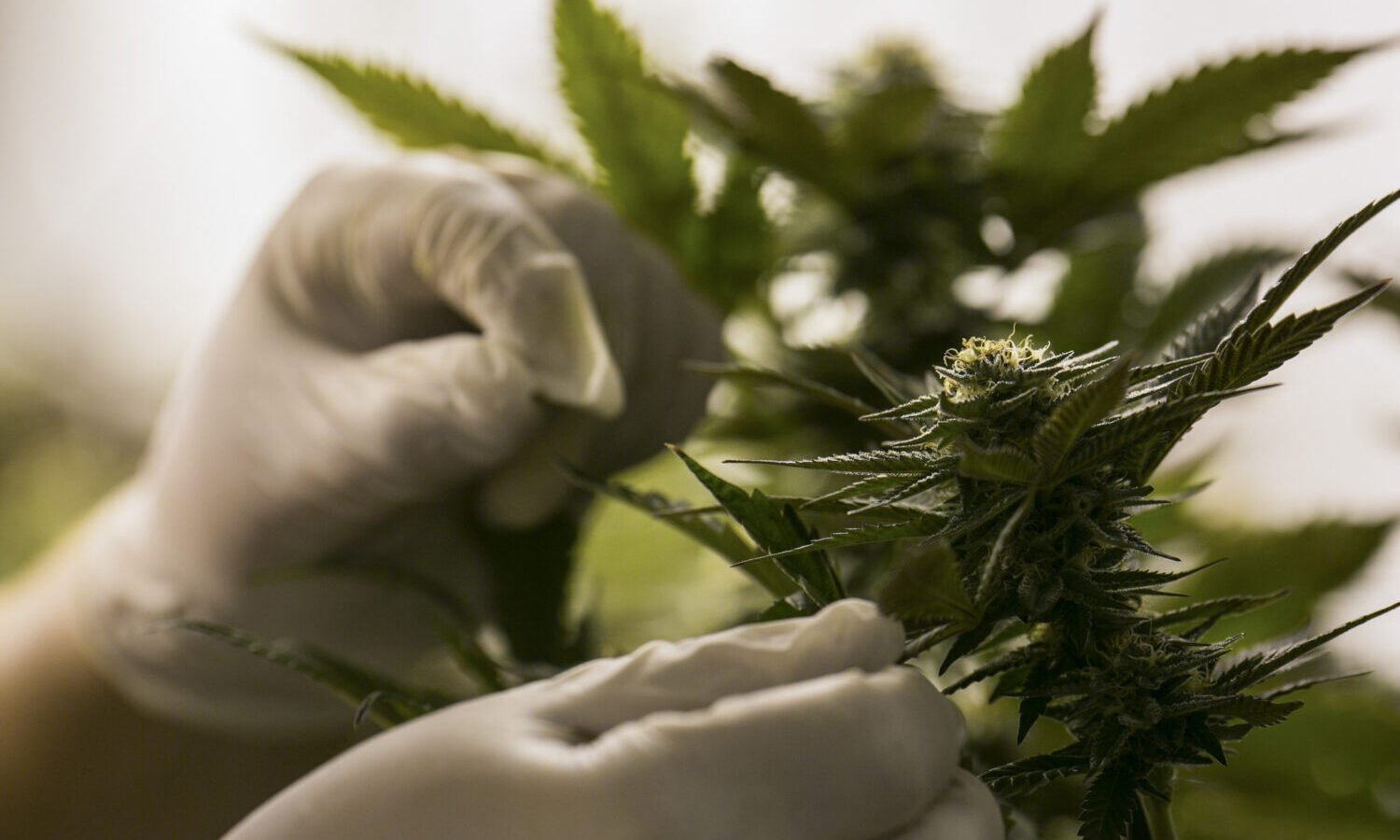
CBDA is mainly found in cannabis plant material. Like other major and minor cannabinoids, it reacts with the body’s endocannabinoid system and receptors in the central nervous system and immune system.
This less-famous cannabinoid exists as cannabigerolic acid (CBGA) before it is converted to its true form. The mother cannabinoid CBGA is not only a precursor to CBDA, but also to Tetrahydrocannabinolic (THCA) and Cannabicheomenic acid (CBCA)
Conversion of CBGA to CBDA
CBGA is converted into CBDA by an enzymatic process. Once formed, it remains this way until the decarboxylation process takes place. Decarboxylation is the conversion of acidic cannabinoids to their decarboxylated forms. CBDA is converted to CBD, THCA to THC, and CBCA to CBC. When cannabis is heated, the decarboxylation process takes place. Cannabinoids’ molecular structure changes when they are heated, dried, or treated. The method alters the substance’s chemical structure by removing one acidic carboxyl group.
While certain cannabis plants have been cultivated to contain balanced quantities of CBDA and THCA, CBDA is often only found in very small concentrations in cannabis plants. Mainly hemp plants are well-known for having significant levels of CBDA and traces of THCA.
The cannabinoids found in hemp plants can be concentrated through an extraction procedure. These cannabinoids alter how cells communicate response signals, which can have a variety of positive impacts on the body and mind.
CBDA was first discovered and isolated in 1965 by Israeli scientist Rafael Mechoulam. It was subsequently activated to CBD for its medical benefits. New studies suggest that CBDA could be more effective in its acidic state than CBD for curing or treating some medical conditions.
Is CBDA psychoactive?
CBDA does not induce any form of psychoactivity. Like CBD, it is unable to cause intoxication. It is often used for medical patients that do not want to feel impaired, couch-locked, or lose focus. CBDA does not bind to the CB1 and CB2 receptors because it is acidic. Instead, it inhibits the Cox-2 enzyme without impacting the CNS.
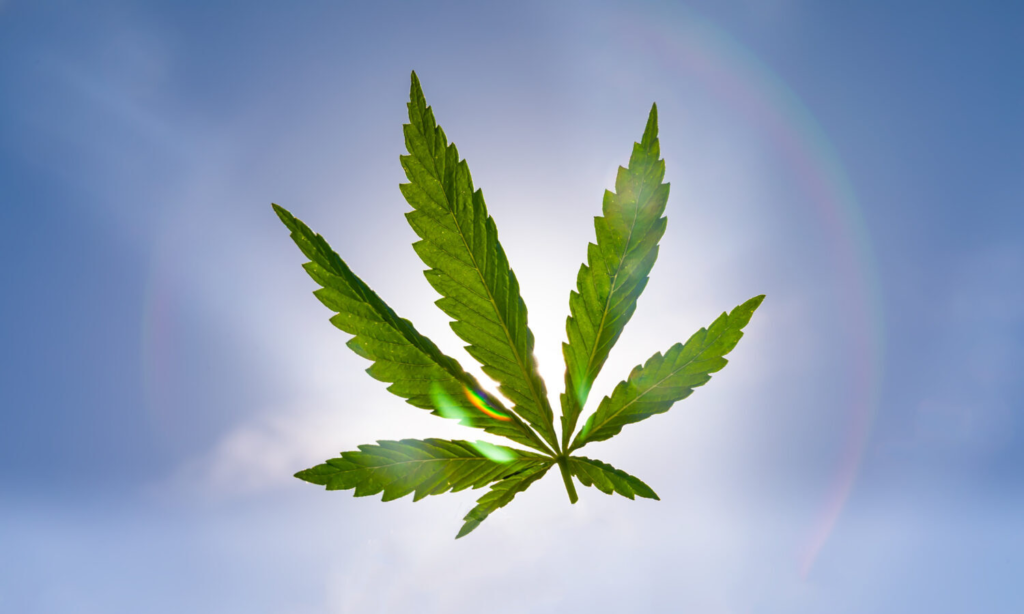
Benefits of CBDA in hemp products
CBDA is perceived as an effective treatment for certain medical illnesses. Its affinity to bind to serotonin receptors allows it to affect most symptoms, including mood swings, nausea, fatigue, and inflammation.
Compared to CBD, CBDA has been found to have a stronger activation of 5-HT1A serotonin receptors. Numerous physiological processes, including the control of mood, motion sickness, migraine, and intestinal movement, are influenced by serotonin.
According to the available studies, CBDA’s potential as a medication is still in question. Clinical investigations have mainly utilized animal models up until now. We won’t fully understand CBDA’s potential until clinical trials focus on people’s health and its mechanism of action.
Anti-inflammatory effect of CBDA
Due to its features as a specific Cox-2 inhibitor, CBDA has anti-inflammatory properties and may be effective in lessening inflammation. The functions of cyclooxygenase (Cox) enzymes 1 and 2 vary.
The stomach and intestinal walls are maintained by Cox-1. Cox-2 causes inflammation. Ibuprofen and aspirin are examples of nonsteroidal anti-inflammatory medicines (NSAIDs) that function by obstructing the actions of these enzymes. The gastrointestinal tract may be harmed by long-term reliance on certain medications.
Because of this, scientists have been working to develop selective Cox-2 inhibitors that don’t block Cox-1 enzymes without running the danger of seriously harming the stomach lining and intestines. CBDA functions similarly to NSAIDs but without the adverse effects on the digestive system.
Anti-nausea effect of CBDA
Guelph University researchers discovered that CBDA was an effective treatment for nausea and vomiting brought on by toxins and motion sickness.
The study discovered that CBDA was particularly fantastic at lowering anticipatory nausea. This happens when a patient has nausea just before receiving chemotherapy. Since there are no recognized cures for this type of nausea, CBDA is an up-and-coming alternative.
The study team also examined the interactions between the anti-nausea medication ondansetron and the CBDA. The researchers discovered that even a minimal amount of CBDA enhances the medication’s antiemetic effects.

Anti-seizure effects of CBDA
Epidiolex, a CBD-based medication, became the first prescription medicine product to receive FDA approval for treating treatment-resistant epilepsy, launching CBD into the public eye. It suggests that its acidic counterpart may lessen the severity and duration of seizures in some cases.
The manufacturer of Epidiolex, GW Pharma, has conducted tests contrasting the effects of CBDA and CBD. According to research, CBDA can have a quicker-acting effect than its parent molecule and higher bioavailability.
Their research showed that smaller doses of CBDA were needed for effectiveness, reducing the possibility of harmful side effects. In several instances, CBDA outperformed CBD in terms of lowering seizure frequency.
Last words: How to use CBDA
There are natural and synthetic CBDA products. However, CBDA extract is more prevalent in the budding CBD market.
CBDA cannot be inhaled in its natural form since doing so would cause the cannabinoid acid to transform into CBD. You can use uncooked cannabis blossoms and leaves in recipes. To get your greens without getting high, try eating the leaves raw in a salad, blending them into a smoothie, or producing natural cannabis juice.
You can also create tea from raw flower buds high in CBDA. Simply put, you have to put them in a cup and let them steep. The CBDA will be partially decarbed by the water instead of infused into your beverage. Many cannabis products contain CBDA. Customers can purchase raw hemp oil items like tinctures, capsules, and raw CBD oil.
Source: https://thefreshtoast.com/cannabis/what-is-cbda-and-how-does-it-help-the-human-body/
Business
New Mexico cannabis operator fined, loses license for alleged BioTrack fraud

New Mexico regulators fined a cannabis operator nearly $300,000 and revoked its license after the company allegedly created fake reports in the state’s traceability software.
The New Mexico Cannabis Control Division (CCD) accused marijuana manufacturer and retailer Golden Roots of 11 violations, according to Albuquerque Business First.
Golden Roots operates the The Cannabis Revolution Dispensary.
The majority of the violations are related to the Albuquerque company’s improper use of BioTrack, which has been New Mexico’s track-and-trace vendor since 2015.
The CCD alleges Golden Roots reported marijuana production only two months after it had received its vertically integrated license, according to Albuquerque Business First.
Because cannabis takes longer than two months to be cultivated, the CCD was suspicious of the report.
After inspecting the company’s premises, the CCD alleged Golden Roots reported cultivation, transportation and sales in BioTrack but wasn’t able to provide officers who inspected the site evidence that the operator was cultivating cannabis.
In April, the CCD revoked Golden Roots’ license and issued a $10,000 fine, according to the news outlet.
The company requested a hearing, which the regulator scheduled for Sept. 1.
At the hearing, the CCD testified that the company’s dried-cannabis weights in BioTrack were suspicious because they didn’t seem to accurately reflect how much weight marijuana loses as it dries.
Company employees also poorly accounted for why they were making adjustments in the system of up to 24 pounds of cannabis, making comments such as “bad” or “mistake” in the software, Albuquerque Business First reported.
Golden Roots was fined $298,972.05 – the amount regulators allege the company made selling products that weren’t properly accounted for in BioTrack.
The CCD has been cracking down on cannabis operators accused of selling products procured from out-of-state or not grown legally:
- Regulators alleged in August that Albuquerque dispensary Sawmill Sweet Leaf sold out-of-state products and didn’t have a license for extraction.
- Paradise Exotics Distro lost its license in July after regulators alleged the company sold products made in California.
Golden Roots was the first alleged rulebreaker in New Mexico to be asked to pay a large fine.
Source: https://mjbizdaily.com/new-mexico-cannabis-operator-fined-loses-license-for-alleged-biotrack-fraud/
Business
Marijuana companies suing US attorney general in federal prohibition challenge

Four marijuana companies, including a multistate operator, have filed a lawsuit against U.S. Attorney General Merrick Garland in which they allege the federal MJ prohibition under the Controlled Substances Act is no longer constitutional.
According to the complaint, filed Thursday in U.S. District Court in Massachusetts, retailer Canna Provisions, Treevit delivery service CEO Gyasi Sellers, cultivator Wiseacre Farm and MSO Verano Holdings Corp. are all harmed by “the federal government’s unconstitutional ban on cultivating, manufacturing, distributing, or possessing intrastate marijuana.”
Verano is headquartered in Chicago but has operations in Massachusetts; the other three operators are based in Massachusetts.
The lawsuit seeks a ruling that the “Controlled Substances Act is unconstitutional as applied to the intrastate cultivation, manufacture, possession, and distribution of marijuana pursuant to state law.”
The companies want the case to go before the U.S. Supreme Court.
They hired prominent law firm Boies Schiller Flexner to represent them.
The New York-based firm’s principal is David Boies, whose former clients include Microsoft, former presidential candidate Al Gore and Elizabeth Holmes’ disgraced startup Theranos.
Similar challenges to the federal Controlled Substances Act (CSA) have failed.
One such challenge led to a landmark Supreme Court decision in 2005.
In Gonzalez vs. Raich, the highest court in the United States ruled in a 6-3 decision that the commerce clause of the U.S. Constitution gave Congress the power to outlaw marijuana federally, even though state laws allow the cultivation and sale of cannabis.
In the 18 years since that ruling, 23 states and the District of Columbia have legalized adult-use marijuana and the federal government has allowed a multibillion-dollar cannabis industry to thrive.
Since both Congress and the U.S. Department of Justice, currently headed by Garland, have declined to intervene in state-licensed marijuana markets, the key facts that led to the Supreme Court’s 2005 ruling “no longer apply,” Boies said in a statement Thursday.
“The Supreme Court has since made clear that the federal government lacks the authority to regulate purely intrastate commerce,” Boies said.
“Moreover, the facts on which those precedents are based are no longer true.”
Verano President Darren Weiss said in a statement the company is “prepared to bring this case all the way to the Supreme Court in order to align federal law with how Congress has acted for years.”
While the Biden administration’s push to reschedule marijuana would help solve marijuana operators’ federal tax woes, neither rescheduling nor modest Congressional reforms such as the SAFER Banking Act “solve the fundamental issue,” Weiss added.
“The application of the CSA to lawful state-run cannabis business is an unconstitutional overreach on state sovereignty that has led to decades of harm, failed businesses, lost jobs, and unsafe working conditions.”
Business
Alabama to make another attempt Dec. 1 to award medical cannabis licenses

Alabama regulators are targeting Dec. 1 to award the first batch of medical cannabis business licenses after the agency’s first two attempts were scrapped because of scoring errors and litigation.
The first licenses will be awarded to individual cultivators, delivery providers, processors, dispensaries and state testing labs, according to the Alabama Medical Cannabis Commission (AMCC).
Then, on Dec. 12, the AMCC will award licenses for vertically integrated operations, a designation set primarily for multistate operators.
Licenses are expected to be handed out 28 days after they have been awarded, so MMJ production could begin in early January, according to the Alabama Daily News.
That means MMJ products could be available for patients around early March, an AMCC spokesperson told the media outlet.
Regulators initially awarded 21 business licenses in June, only to void them after applicants alleged inconsistencies with how the applications were scored.
Then, in August, the state awarded 24 different licenses – 19 went to June recipients – only to reverse themselves again and scratch those licenses after spurned applicants filed lawsuits.
A state judge dismissed a lawsuit filed by Chicago-based MSO Verano Holdings Corp., but another lawsuit is pending.
Source: https://mjbizdaily.com/alabama-plans-to-award-medical-cannabis-licenses-dec-1/
-

 Business2 years ago
Business2 years agoPot Odor Does Not Justify Probable Cause for Vehicle Searches, Minnesota Court Affirms
-

 Business2 years ago
Business2 years agoNew Mexico cannabis operator fined, loses license for alleged BioTrack fraud
-

 Business2 years ago
Business2 years agoAlabama to make another attempt Dec. 1 to award medical cannabis licenses
-

 Business2 years ago
Business2 years agoWashington State Pays Out $9.4 Million in Refunds Relating to Drug Convictions
-

 Business2 years ago
Business2 years agoMarijuana companies suing US attorney general in federal prohibition challenge
-

 Business2 years ago
Business2 years agoLegal Marijuana Handed A Nothing Burger From NY State
-

 Business2 years ago
Business2 years agoCan Cannabis Help Seasonal Depression
-

 Blogs2 years ago
Blogs2 years agoCannabis Art Is Flourishing On Etsy


